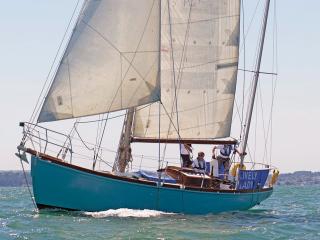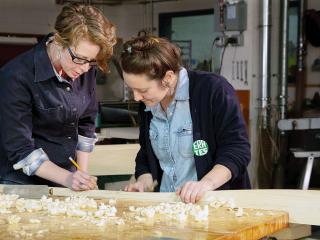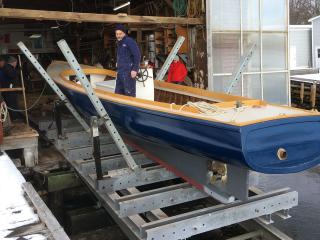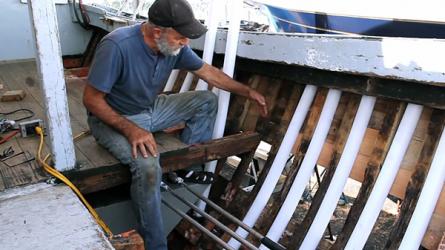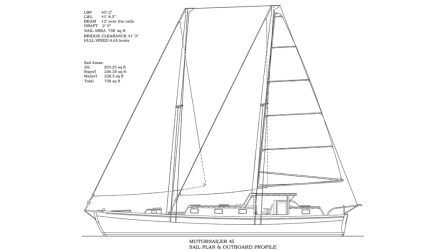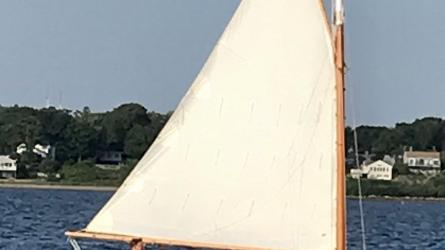May / June 2020
Teaching with Small Boats

Seventh-grade students from the Port Townsend (Washington) School District launch the Skunk Island Skiff they built on an eight-day Maritime Discovery Program at the Northwest Maritime Center, a longtime member of the Teaching with Small Boats Alliance.
In 1997, Joe Youcha and his team at the Alexandria Seaport Foundation (ASF) in Alexandria, Virginia, designed the flat-bottomed, 11' 8" Bevin’s Skiff as a tool to teach math and boatbuilding skills to their apprentices. It is unlikely they imagined then that their simple plywood skiff would carry a cargo of education programming to teachers all over the world eager for engaging ways to teach math and science to young people.
Thirteen years later, Youcha resigned from his position as ASF’s executive director so he could focus his energy on training educators to use boatbuilding as an effective teaching tool for math. His new initiative, Building to Teach (B2T), quickly grew into a coalition of organizations called the Teaching with Small Boats Alliance (TWSBA, www.teachingwithsmallboats.org).
TWSBA held its first conference in 2010 with the purpose of “sharing information and best practices about program development and leadership, hands-on building projects, and integration of maritime-based lessons into school curriculum.” They held their sixth conference in 2019 at the Antique Boat Museum in Clayton, New York, and there I met a group of 110 creative, intelligent people representing 65 organizations from around the United States—and beyond.
The attendees included educators from schools that train students for careers in the maritime trades, middle- and secondary-school teachers passionate about hands-on learning, museum employees eager to engage and educate visitors of all ages, and dozens of mentors involved in community groups that build boats with young people to help give them some of the tools needed to succeed in life.
To read the rest of this article:
Click the button below to log into your Digital Issue Access account.
No digital access? Subscribe or upgrade to a WoodenBoat Digital Subscription and finish reading this article as well as every article we have published for the past 50-years.
ACCESS TO EXPERIENCE
2-for-1 Print & Digital Subscription Offer
For this holiday season, WoodenBoat is offering our best buy one, get one deal ever. Subscribe with a print & digital subscription for $42.95, and we’ll give you a FREE GIFT SUBSCRIPTION to share with someone special.
1 YEAR SUBSCRIPTION (6 ISSUES)
PLUS ACCESS TO MORE THAN 300 DIGITAL BACK ISSUES
PRINT+DIGITAL $42.95
Subscribe
To read articles from previous issues, you can purchase the issue at The WoodenBoat Store link below.
 Purchase this issue from
Purchase this issue from

